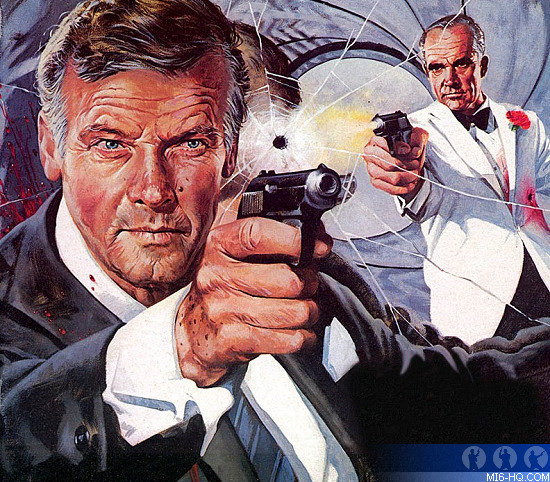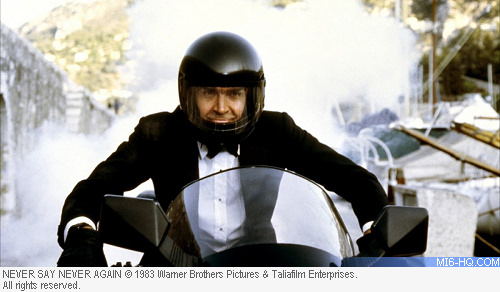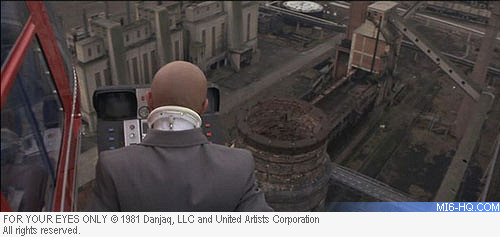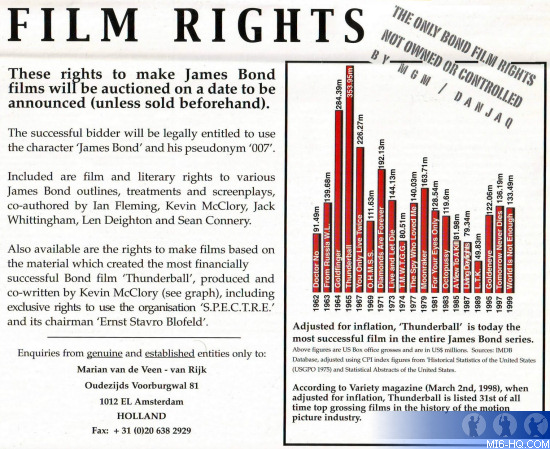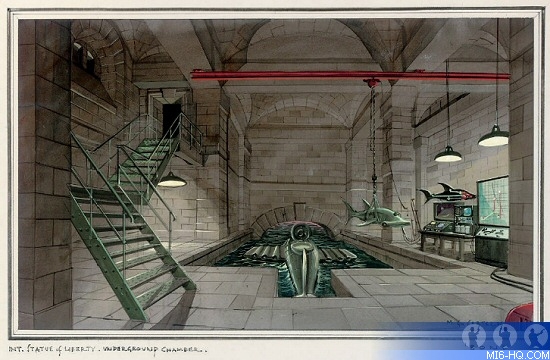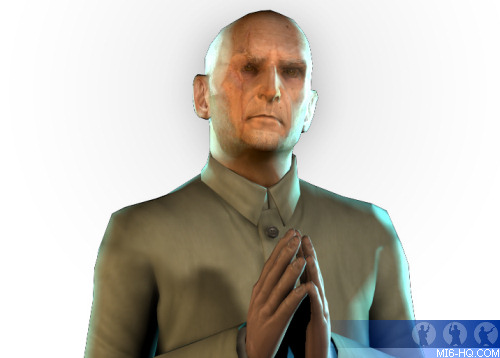10 Negative Ways Kevin McClory Affected The 007 Franchise
17th November 2013
MI6 explores some of the less than positive effects Kevin McClory has had on James Bond over the past 50 years
 By MI6 Staff
By MI6 Staff
Connery Didn't Shoot "On
Her Majesty's Secret Service"
Whilst "Goldfinger" was in production, Cubby
Broccoli and Harry Saltzman decided
that "On Her Majesty's Secret Service" would
be the fourth film in the series, to be released in 1965. In September 1964,
Kevin McClory approached
Broccoli and Saltzman with an offer to co-produce a big screen adaptation of
'Thunderball' (the only novel, along
with 'Casino
Royale', that EON Productions
could not adapt at that time). Rather than risk a rival production hitting screens
just as they were about to experience the peak of their achievements, EON decided
to collaborate with McClory and make "Thunderball" next. They would
make McClory producer and give him 20% of the film's profits. The end credits
of "Goldfinger" were hastily changed to reflect the new plan, and "Majesty's" would
be shelved until 1969 when George Lazenby took over the role.
|
"Never Say Never Again" Got
Made
The combination of McClory's desire to exercise his rights to
remake "Thunderball" against the wishes of Cubby
Broccoli's EON Productions, and Sean
Connery's bitterness to
the official franchise (and the promise of a hefty $3m pay
day) were not enough to make this Bond movie a Bond movie.
No gun barrel, no James Bond theme, a luck-lustre score, uninspired
cinematography and hokey special effects reminded audiences
what they were missing. Roger
Moore's official entry of 1983, "Octopussy",
beat "Never Say Never Again"
at the box-office by more than $20m.
|
Obscure Inside Joke
Originally written to introduce a new actor to the role of James
Bond, the "For Your Eyes
Only" pretitles sequence
ultimately saw a renewed Roger Moore taking on a suspiciously
familiar bald-headed villain in a wheelchair stroking a white
cat. This was their way of giving a one-finger salute to McClory,
who had announced his "Thunderball" remake - the
film which would become "Never Say Never Again".
Disposing of 'Blofeld' so early in the film was to signify
that 007's success didn't rely on those rights. The villain's
final line in the sequence, when Bond is about to drop down
the industrial chimney - "I'll buy you a delicatessen...
in stainless steel!" - was contributed by producer Cubby
Broccoli. It's a reference to 1930s New York mafia gangsters
who offered full-service delis as a bribe to cohorts.
|
Sony Got Burned
When his rights to remake "Thunderball" cycled around
again in the 1990s, McClory shopped the project to Sony under
the banner of "Warhead 2000 A.D." Timothy Dalton was
approached for the lead role after publicly stepping down from
his EON Productions contract, who were at legal logger-heads
with MGM putting the series on hiatus. But not so fast - McClory's
claims were quickly put under legal scrutiny. Wanting to get
a clear pass to produce a new franchise based on 'Spider-Man'
and untangle the litigious mess McClory had lead them in to,
Sony ceded all their Bond interests to MGM in return for the
latter waiving all claims to the web-slinger. Jack Calley, who
defected from United Artists to Sony after helping oversee the
Brosnan-era reboot of Bond, was publicly slammed by MGM for 'stealing
secrets'.
Trade Paper Ads
Every few years, McClory would resurface with plans to launch a remake of "Thunderball" or
a rival Bond series based on the rights he acquired in 1963. His production company's
announcements would often be followed up by rebuttals from MGM/Danjaq/EON Productions
that there was only one 007 franchise. This tit-for-tat public bickering didn't
help either party with their commercial partnerships. The last bout in 2002 saw
McClory (via a Dutch businessman) offering an auction of all the James Bond rights
to the highest bidder.
|
Lawyers Got Rich
Prior to Sony's settlement with MGM in 1999, they filed a lawsuit
against MGM claiming McClory was the co-author of the cinematic
007 and was owed fees from Danjaq and MGM for all past films.
This lawsuit was thrown out in 2000 on the grounds that McClory
had waiting too long to bring his claims. The court of appeals
affirmed this decision in 2001. The winner? The lawyers.
Unmade Movies
Will we ever see a Bond girl called Justine Lovesit and robotic
sharks delivering nuclear bombs through the sewers of Manhattan?
Perhaps not, but those were some of the concepts in the 1976 "Warhead" script
that was a collaboration with Sean Connery and Len Deighton.
Described as 'Star Wars underwater', Connery got nervous about
the legal entanglements, saying "Before I put my nose
in to anything, I want to know it is legally bona fide." Then
Paramount got nervous too, and walked away with their $22m
budget. McClory tried to recycle the script again in 1989,
retitling the film "Atomic Warfare", and approached
Pierce Brosnan who had missed out on the role to Timothy Dalton
due to an NBC contract.
|
Jack Whittingham Goes Unpraised
He is one of the Bond franchise's unsung heroes. Jack Whittingham
first started work on a "Thunderball" screenplay
in 1959. After Ian Fleming took
the story and penned the novel 'Thunderball', Whittingham and
McClory failed in their attempt
to being an injunction to halt publication. Although they later
won their case in court in 1963, it was McClory who was awarded
the screen rights to 'Thunderball', abandoning Whittingham
when he took the option to Saltzman and Broccoli. Whittingham
issued his own writ against Fleming in December 1963 (damages
for libel, malicious falsehood and damage to professional reputation)
but had to drop the case in August 1964 when Fleming died.
He never got his day in court.
Vague Videogame Villains
Due to the videogame rights to 007 being issued by Danjaq and
MGM, publishers had to work under strict guidance not to use
the character of Blofeld in order to avoid any potential legal
action from McClory. So instead of classic multiplayer action
with Blofeld, players were left with Austin Powers-esque generic
bald-headed men with bad accents in nehru suits occasionally
called 'Number One'. In the last digital title, '007
Legends',
the character was finally called Ernst Stavro Blofeld (no doubt
due to a loophole in that "On Her Majesty's Secret Service" was
adapted in part), but his appearance was an amalgamation of
all previous big-screen likenesses.
|
Stoking The Tabloids
McClory's attempts to have his own Bond franchise hit the zenith
of ridiculousness in 1998 when he fed tabloids the concept
of Connery returning to play Bond at age 68 in "Doomsday
2000" - to open on December 31st 1999 opposite Pierce
Brosnan's third 007 film ("The
World Is Not Enough").
The red top rags lapped it up, even claming Lois Maxwell would
return as Miss Moneypenny and Geoffrey Palmer as M. The papers
claimed Wesley Snipes would play Largo, who steals six Cruise
missiles in a stealth bomber! Gwyneth Paltrow was touted as
Bond girl Domino.





